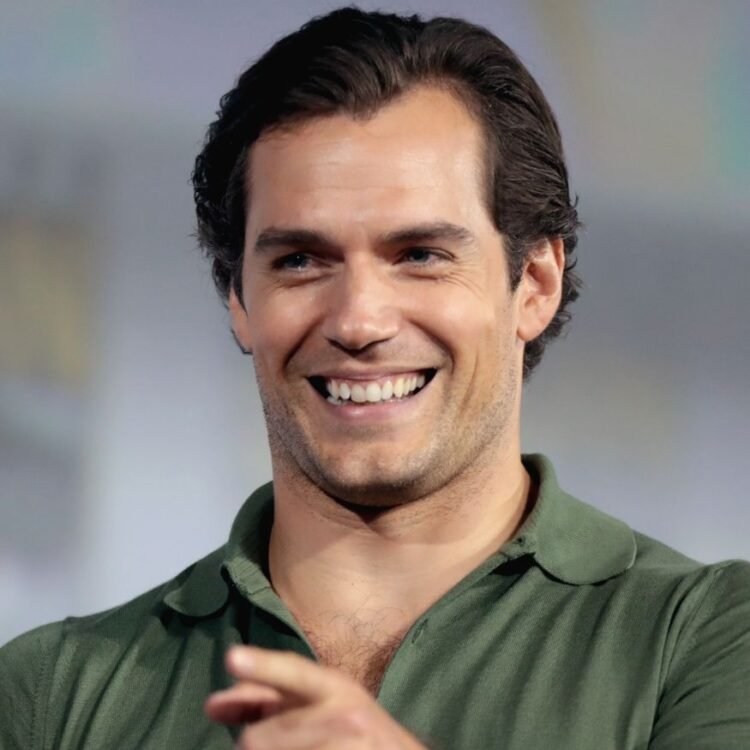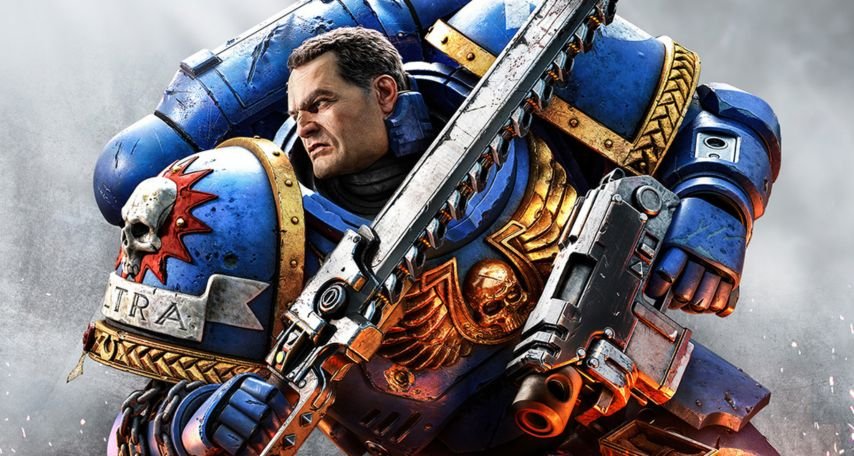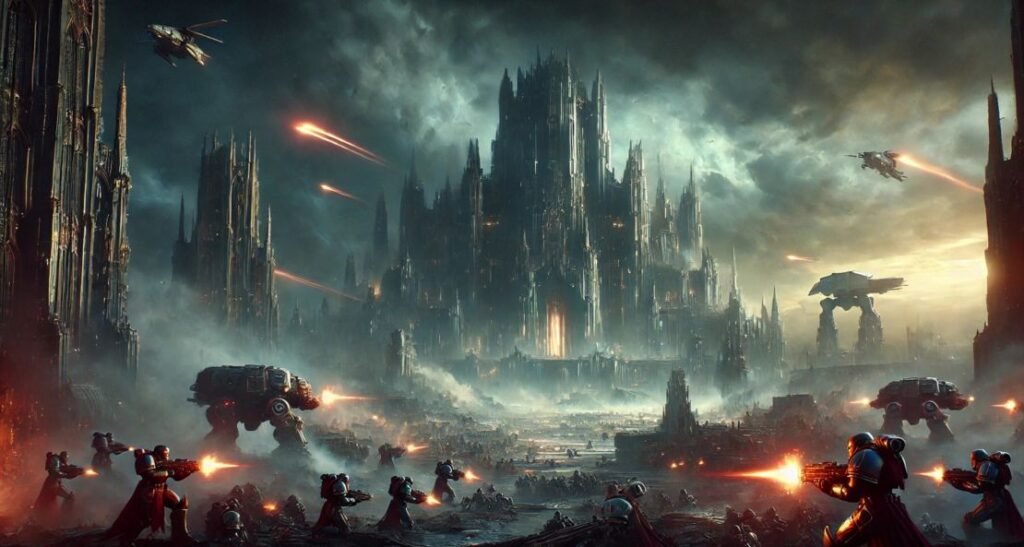The Emperor Has Spoken: Henry Cavill’s Warhammer 40K Series Moves Forward
The wait is over—Henry Cavill’s long-teased Warhammer 40,000 adaptation is officially in development at Amazon Prime Video.
After years of speculation, Games Workshop and Amazon have locked in their creative vision, with Cavill himself leading the charge as both producer and star.
Given his reputation as Hollywood’s reigning king of geek culture—whether flying through Metropolis or hunting monsters in The Witcher—it’s no surprise that he’s taking his biggest passion project to the next level.
But as exciting as this is for fans, the task ahead is monumental. Warhammer 40K isn’t just a tabletop game; it’s a sprawling universe of brutal factions, grimdark storytelling, and lore so dense it makes Tolkien’s work look like a light weekend read.

Can Cavill balance the demands of die-hard fans while making the universe accessible to newcomers?
More importantly, can Amazon translate the game’s unrelenting, apocalyptic aesthetic into a mainstream hit?
Building the Warhammer Cinematic Universe
The first big win? Cavill isn’t just slapping his name on the project—he’s involved in worldbuilding from the ground up.
He’s been spotted breaking down key concepts with Games Workshop, poring over old rulebooks, and setting the foundation for what could be an expansive Warhammer Cinematic Universe.
That’s crucial, because unlike other game-to-screen adaptations (Halo, anyone?), this one can’t afford to get lost in translation.
However, there’s no escaping the sheer scale of the Warhammer 40K universe.
This isn’t a standard sci-fi dystopia where plucky rebels take down an evil empire.
Every faction is morally compromised, the galaxy is in a permanent state of war, and the Imperium of Man—the closest thing to a “good guy” faction—is a theocratic nightmare built on oppression and fanatical devotion.
Amazon needs to walk a tightrope, capturing the setting’s dark, operatic grandeur while giving audiences a character-driven story that won’t leave them feeling like they need a 400-page lore book just to keep up.
The Grimdark Dilemma: Can Warhammer 40K Appeal to a Wider Audience?
One of the biggest challenges? Making Warhammer 40K digestible without watering it down.
The franchise pioneered the grimdark genre, where hope is scarce, heroes are often villains, and war never ends.
That’s a tough sell in an era where audiences still expect clear-cut protagonists.
Even Game of Thrones, which shares Warhammer 40K’s love of brutal politics and betrayals, had the advantage of familiar medieval fantasy tropes.
Cavill and his team need to find a way to keep the franchise’s identity intact while ensuring there’s something for new viewers to latch onto.
Will they take inspiration from the Horus Heresy novels, which explore the downfall of the Imperium, or start with something more character-driven, like a rogue trader navigating the chaos of the galaxy?
If done right, Warhammer 40K has the potential to be the next Dune, drawing in viewers who crave intricate worldbuilding and large-scale sci-fi epics.
But lean too heavily into the bleakness, and it risks alienating all but the most devoted fans.
What We Know So Far
Details about the first season remain under wraps, though Cavill has hinted that the project is in a “fantastic place to start” and has Amazon’s full backing.
There’s no confirmed showrunner yet, but given the studio’s recent investment in high-profile genre projects (The Rings of Power, The Expanse), expect big-budget worldbuilding and top-tier talent.
Amazon has already dipped its toes into Warhammer 40K content through Secret Level, a Prime Video anthology series showcasing video game adaptations.
The Warhammer 40K-themed episode received positive reactions, reinforcing the franchise’s potential in live-action form.
This experimental approach may have been a soft test for audiences, giving Amazon confidence to push forward with Cavill’s full-scale adaptation.
If Secret Level proved anything, it’s that Warhammer 40K isn’t just for tabletop die-hards—there’s a much wider audience waiting to explore its grimdark universe.
The real question is whether Amazon can avoid the pitfalls of previous adaptations.
Some (The Last of Us) nailed the balance between faithfulness and accessibility.
Others (Halo) stumbled by overcomplicating the narrative and missing what made the franchise special in the first place.
Warhammer 40K will need careful handling to avoid the latter.
A Make-or-Break Moment for Warhammer Fans

This is the first time Warhammer 40K has had a chance at mainstream success.
The franchise has been steadily growing beyond the tabletop scene, with video games like Space Marine and Darktide introducing new audiences to its world.
But this series will determine whether Warhammer 40K stays a niche passion or finally takes its place among pop culture’s biggest sci-fi properties.
For Cavill, this is more than just another role. It’s a passion project years in the making, a chance to bring a universe he’s loved since childhood to life.
If he pulls it off, he won’t just be the face of Warhammer 40K—he’ll be the man who finally made it mainstream.
Final Thoughts: Can Warhammer 40K Be the Next Big Sci-Fi Franchise?
With Amazon backing the project and Cavill’s commitment to authenticity, the big-budget sci-fi has all the ingredients for success.
But the execution will be everything.
If the series captures the franchise’s scale, complexity, and sheer sense of cosmic dread—while giving audiences something to emotionally invest in—it could be one of the most ambitious sci-fi adaptations in years.
If not? Well, at least the Warhammer 40K fans will always have their tabletop battles.
One thing’s certain: The Emperor protects—but Amazon better not mess this up.


